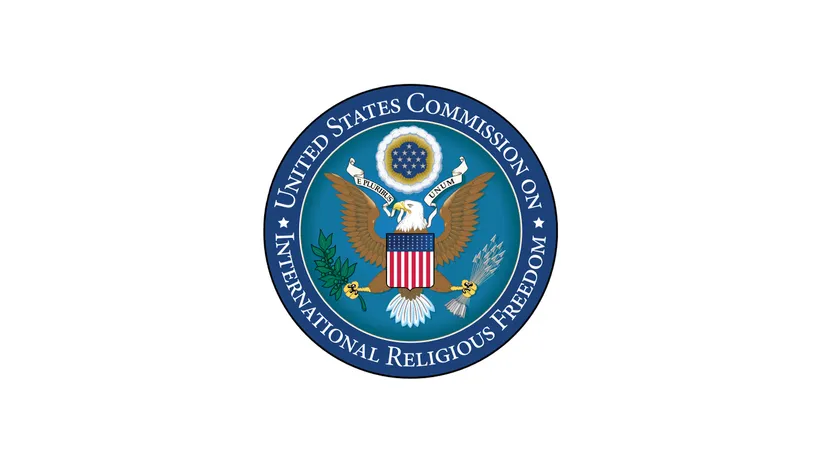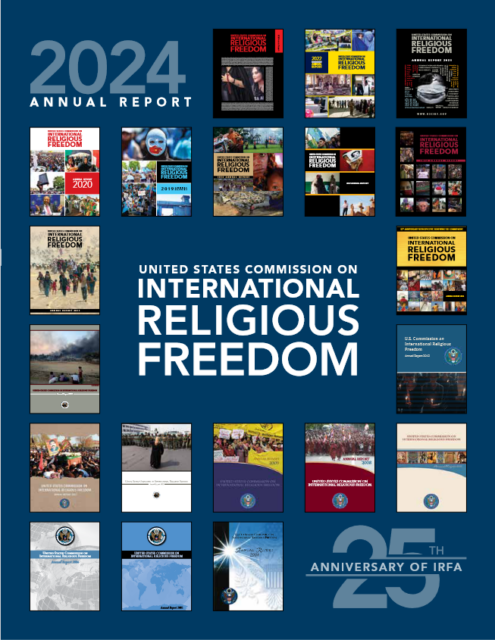United States Commission on International Religious Freedom: 2024 Annual Report


In 2023, religious freedom conditions in Burma continued to decline significantly. Since its February 2021 coup, the country’s military—known as the Tatmadaw—has attempted to rule the country through the State Administration Council (SAC) under the leadership of Senior General Min Aung Hlaing. The SAC has relied on assistance from abroad, importing approximately $1 billion in weapons, the majority from Russia and China. Throughout the year, the SAC continued to pursue what the United Nations (UN) Independent Investigative Mechanism for Myanmar described as “increasingly brazen” war crimes in its attempt to quell the disparate opposition forces, including through the increasing use of airstrikes. Since 2021, such tactics have destroyed nearly 200 religious buildings across Burma, including 85 churches in Chin State and 40 Buddhist monasteries, a nunnery, six churches, and three mosques in Sagaing. In 2023, the Tatmadaw continued to target, occupy, and destroy more houses of worship, particularly those belonging to minority religious communities. In November, the army bombed and then occupied Christ the King Cathedral in Kayah State. These tactics mirror previous reporting on the army’s occupation of Baptist churches in Chin State.
Throughout 2023, the SAC continued its attempts to link its legitimacy to Buddhism, including through printing new currency to showcase its sponsorship of Theravada Buddhism. In July, the SAC finished construction on a giant seated Buddha. The project was supervised by Senior General Hlaing and cost around $26.7 million, which the government financed amid a deteriorating economy. In August, authorities arrested a Swiss movie director and 13 Burmese actors on blasphemy charges for producing a film that allegedly insulted the virtue of Buddhist monks. The military’s sponsorship of Buddhism has not prevented the SAC in 2023 from attacking monasteries or killing Buddhist monks. Evidence suggests that members of the Bamar Buddhist majority have largely abandoned support for the Tatmadaw.
As of the end of 2023, hundreds of thousands of people were internally displaced in Burma, including over 100,000 people in Christian-majority Kayah State. Rohingya refugees from Burma located in Bangladesh continued to face an uncertain future. In October, officials from the SAC traveled to Bangladesh as part of a pilot repatriation scheme brokered by China. While Rohingya families in refugee camps wish to return to their homeland, the ongoing conflict and absence of guarantees of safety remained a persistent concern. The SAC continues to block humanitarian aid to all vulnerable populations, including those displaced.
International efforts to hold perpetrators of human rights abuses and atrocities within Burma continued in 2023, including in the case of The Gambia vs. Myanmar at the International Court of Justice (ICJ). In November, Canada, Denmark, France, Germany, the Netherlands, and the United Kingdom filed a joint declaration of intervention in support of The Gambia. The Maldives filed a separate declaration to intervene in support of The Gambia. This case would officially determine, according to international law, whether the Burmese authorities committed acts of genocide against Rohingya in 2017. In March 2022, the United States determined unilaterally that the Burmese authorities committed genocide against Rohingya and has provided evidence in support to The Gambia.
The National Unity Government (NUG), a pro democracy opposition organization that has attempted to organize the various ethnic armies and resistance movements, continued to pledge respect for international human rights standards following a return to democracy. This includes reiterating its commitment to abolish the 1982 citizenship law that excludes Rohingya from citizenship, as well as any other local laws used to discriminate against Rohingya. Human rights activists continued to raise the need for a federal system of government in Burma to better empower ethnic and religious minorities at the local and state level as a means for securing religious freedom and other related human rights.
Recommendations to the U.S. Government
- Redesignate Burma as a “country of particular concern,” or CPC, for engaging in systematic, ongoing, and egregious violations of religious freedom, as defined by the International Religious Freedom Act (IRFA);
- Engage with the prodemocracy Burmese opposition, including the NUG, as well as ethnic organizations as outlined in the Burma Unified through Rigorous Military Accountability Act (BURMA Act) of 2022, and prioritize religious freedom issues such as voluntary repatriation and restored citizenship for the Rohingya community as a prerequisite for recognition and/or ongoing and substantial engagement; and
- Work with the governments of Bangladesh, India, Indonesia, Malaysia, and Thailand to assist Rohingya and other refugee communities from Burma, including by identifying solutions within Cox’s Bazar to fully scale up livelihood and skills training programs for adults and youth and providing curriculum to ensure a quality education for all children within Cox’s Bazar.
The U.S. Congress should:
- Hold hearings on implementation of the BURMA Act, including justice and accountability mechanisms for Rohingya and other persecuted religious minorities.
Announcements
28 February 2025
Asian NGO Network on National Human Rights Institutions , CSO Working Group on Independent National Human Rights Institution (Burma/Myanmar)
Open letter: Removal of the membership of the dis-accredited Myanmar National Human Rights Commission from the Southeast Asia National Human Rights Institution Forum

Progressive Voice is a participatory rights-based policy research and advocacy organization rooted in civil society, that maintains strong networks and relationships with grassroots organizations and community-based organizations throughout Myanmar. It acts as a bridge to the international community and international policymakers by amplifying voices from the ground, and advocating for a rights-based policy narrative.